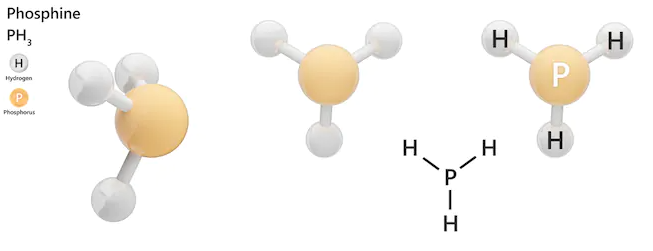Life on Venus: A New Perspective on Extraterrestrial Existence
Written on
Chapter 1: Unveiling the Mysteries of Venus
Is there truly evidence suggesting life exists on Venus? The questions arise: How did we arrive at this conclusion, and why now? Not too long ago, the prevailing belief was that Venus could only have harbored life around 3 billion years ago, prior to its transformation into a scorched landscape. Recently, MIT made a noteworthy announcement that may broaden our comprehension of life and its potential forms. While Venus's surface is inhospitable, what could the researchers be referring to?
I may not be a scientist, but I firmly believe in the importance of learning through sharing knowledge. Here’s a brief reflection based on my findings and how my curiosity continues to drive me. Researchers have identified a curious molecule known as phosphine (PH3) within Venus's atmosphere, located within its cloud layers.
Section 1.1: The Significance of Phosphine
This highly flammable substance is predominantly produced artificially on Earth. As noted in the video, Clara Sousa-Siva, an MIT researcher, points out that it is exceedingly rare to find evidence of its organic creation, typically only detected in extreme environments such as those on planets like Venus, Jupiter, or Saturn.
Subsection 1.1.1: Implications for Astrobiology

Keith from astrobiology.com states, “Its presence implies — implies — some unusual chemistry, as phosphine is a compound you'd expect to find only if life (as we know it) were involved.” This is indeed remarkable! According to current scientific understanding, no known natural processes can produce this molecule. Yet, we have evidence of it on our neighboring planet. The European Southern Observatory (ESO) explains, “On Earth, this gas is produced either industrially or by microbes thriving in oxygen-free environments.”
Janusz Petkowski, another MIT scientist featured in the video, presents two possible interpretations: either our grasp of rocky planet chemistry is significantly flawed, or the unusual chemistry of Venus could hint at the existence of life forms entirely different from those we recognize.
Chapter 2: Challenging Our Understanding of Life
The age-old saying rings true: reality can be stranger than fiction. What if there are life forms based on different chemical structures? Surely, carbon isn't the only foundational compound in a universe that is vast and often unfathomable.
Derek Loew from Science Magazine speculates, “[we don’t know] how frequently any resulting complex organisms develop the ability to use technology to explore their environment.” Remarkably, we have only recently managed to synthesize this compound for pest control. The potential for organic production is thought-provoking, suggesting the likelihood of extraterrestrial life. (The film Evolution humorously comes to mind.)
This topic is captivating and has led me to ponder several insights and questions since the announcement on September 14, 2020. It challenges my self-perception and I hope it aids you in understanding your place in the universe as well. Perhaps we can expand our collective awareness: The inquiry “is there life beyond our planet?” concerns all humans, not just scientists or enthusiasts of UFOs.
The concept of “life” varies widely among individuals, perhaps even more profoundly than our current understanding allows. Should we also include the notion of “sentience” in this discussion? My thoughts lead me to contemplate its relevance and likelihood in this context. We are intricate beings, composed of remarkable cells that enable us to experience consciousness and emotions, which interact with our physical existence. We recognize this in ourselves and in animals; some even extend this belief to plants! So, what’s to prevent the existence of other non-carbon-based entities? Perhaps they are based on methane or phosphine.
If these ideas hold true, it suggests that life might be more prevalent than we ever imagined. This realization could alter our historical perspective and compel us to confront a reality we once deemed fictional.
What are your thoughts on this? I would love to hear your opinions—feel free to comment below or reach out! Thank you for engaging with this exploration! Your insights inspire me. Let’s keep learning and sharing love!